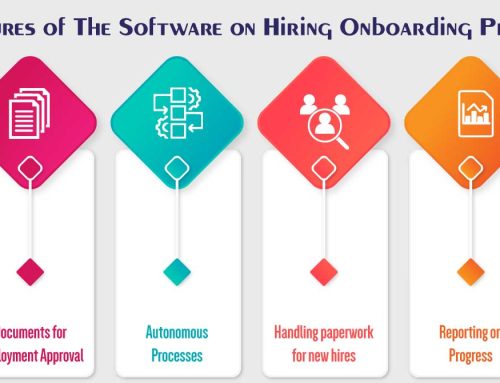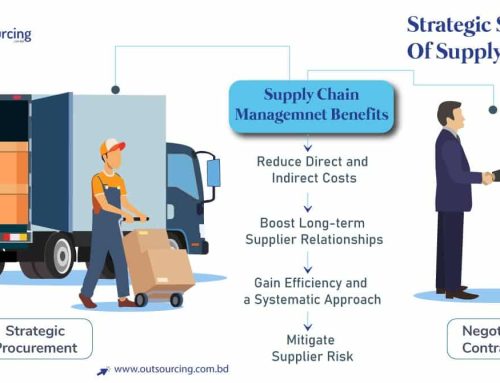Business owners who know the functions that it fulfills can make their business more successful. It is important for your company’s payroll service, whether it is in-house or outsourced, to comply with state and federal laws when it comes to paying taxes.
Payroll Service: The 8 Most Important Reasons
We asked respondents to rank the main points of their dissatisfaction with their current payroll solution in a recent OutsourcingBD survey:
- Customer support is sub-par: 78% of respondents were dissatisfied with customer support.
- User-unfriendly interface: 64% wish their current service was more user-friendly.
- Poor employee experience: 61% wanted to improve employee experiences. .
- Cost-prohibitive: Third of respondents thought payroll services were too expensive. Payroll is mostly dependent on principles of financial management.
- Uncertainties: 18% of respondents were worried about inaccuracies in payroll financial planning.
Note:
According to data from the National Association for Professional Employer Organizations (NAPEO), the PEO industry currently serves at least 15 percent of all employers with a headcount between 10 and 99 employees.
Keypoint:
- Make payroll your way —do it yourself or have Paychex help you; either way, Paychex allows payroll to run smoothly every paycheck.
- Ensure compliance – rely on our experienced professionals who monitor employment and also tax regulations to help you stay abreast of ever-changing laws and regulations.
- Recruit and retain top talent– streamlining your recruitment process and hiring process.
Important
The impact of payroll on employee morale is one of the most important aspects of payroll and HR services. An employee in a small business is likely to be more aware of the company’s financial stability than an employee in a large one. If payroll is late, employees will begin to question the company’s financial integrity. Employees who feel their jobs are not secure will begin to underperform and care less about them. To maintain high employee morale, payroll should always be paid on time
How Much Does the Costs of Payroll Services?
- Basic Payroll Processing: For simple payroll processing, which includes calculating employee hours, tax withholdings, and direct deposit, you might expect to pay anywhere from $20 to $100 per month plus an additional $2 to $5 per employee.
- Advanced Payroll Services: If you’re looking for more advanced services, such as HR functions, time and attendance tracking, workers’ compensation administration, and retirement services, the cost will be higher. You might expect to pay anywhere from $50 to $200 per month plus an additional $5 to $10 per employee.
- Full-Service Payroll and HR: For full-service options, which might include all payroll functions, human resources, and possibly benefits administration, costs can range from $100 to over $500 per month, plus an additional $10 to $20 per employee.
- Setup Fees: Some providers also charge an initial setup fee, which can range from $50 to several hundred dollars.
- Year-End Tax Forms: Some providers charge an additional fee to handle year-end tax forms. This can range from $50 to $100, or it may be included in the service package.
How Do You Choose the Right Payroll Service Solution?
Payroll administration can be divide into four main categories:
- Payroll software purchased from a third party
- Professional employer organizations (PEOs)
- Developing an in-house solution
- Using a national or local accounting firm
The Most Cost-Effective Option
OutsourcingBD solutions are hard to predict up front, but here is a stat for you: one in six IT projects run 200 percent over budget. The long-term cost-effectiveness of OutsourcingBD software is ideal, our financial management is better. The most expensive payroll solution is a full-service PEO, which is available through local and national accounting firms. The most cost-effective option for organizations that are able to build and manage their own human resources team and initiatives in-house is third-party payroll software.
Which Payroll Solution is Right for Your Organization?
Most Businesses Use Following Process For Payroll
The majority of our 500 survey respondents manage their payroll in-house, with 48 percent using a third-party payroll software provider.
Here’s how those third-party software users are classified by company size:
- 40 percent were companies with 26 to 100 employees.
- 51% of the companies had 101-350 employees.
- There were 58% companies with 351–1000 employees.
Summary
Many aspects of an organization are affected by payroll management systems. Such as employee satisfaction, employee trust, salary calculations, compliance, taxes, sales, and revenue. You are highly likely to damage your company’s reputation among employees and business stakeholders if you fail to streamline payroll services in Bangladesh.





